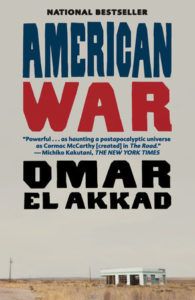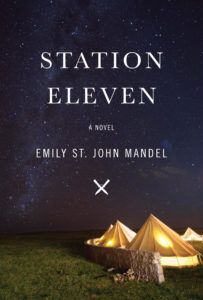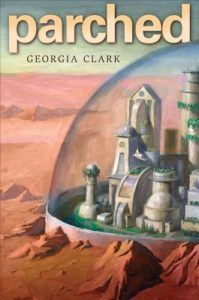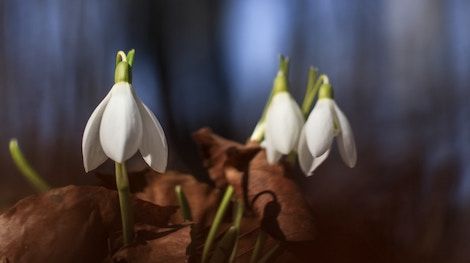
A Change on the Winds: Climate Fiction for YA Readers
This look at climate fiction for YA readers is sponsored by Sponsored by CHENDELL: A Natural Warrior. Read it Today!
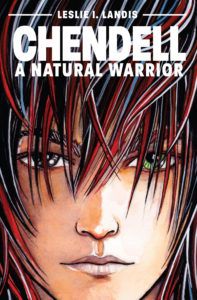
With major scientific reports making it clear that new policy is necessary to avoid unpredictable climate change, it is a golden age for excellent Climate Fiction. People are feeling the pressing importance of halting rising atmospheric temperatures before unexpected or catastrophic results ensue. Cli-Fi doesn’t always deal directly with a climate change subject; often, Cli-Fi involves a disaster or a war that was precipitated on a lack of natural resources. These unique takes involve YA themes or appeal to Young Adults. You’ll find that their interesting potential-future scenarios are matched only by their innovative plots!
 The Islands at the End of the World by Austin Aslan
The Islands at the End of the World by Austin Aslan
Imaginative and strange, this novel posits a cloud that kills electronics all over the world. Heroine Leilani uses her wits to keep from succumbing to danger or to epileptic seizures to which she is prone. Both an adventure and a thought experiment of our world if plunged into internet-darkness, The Islands at the End of the World has bewitched many and is sure to intrigue.
Parable of the Sower by Octavia E. Butler
Butler is truly a household name for any speculative fiction reader. Her hopeful characters are set against a plagued futuristic world: disease, lack of resources, and isolationism are all rampant. The magic/paranormal elements of this story are particularly interesting—the main character has “hyperempathy” and can feel others’ pain fully. Butler’s method of writing is at once distinctive and born of cultural critique. Once you’ve read this one, you have to hit Parable of the Talents and her many other brilliant works.
Out of Breath by Blair Richmond
The first in a trilogy, Out of Breath has all the fun of a paranormal romance with all the eco-friendliness of other climate fiction. As protagonist Kat explores her roots and learns of the beings that live in the forests of the Pacific Northwest, she also learns about what she will need in order to survive. Fans of long-distance running will also recognize the love of running in Kat’s athletic pursuits!
American War by Omar El Akkad
American War takes place after a raw and difficult second civil war, all due to diminished supplies of fossil fuels. Many have cited this book as a tough read because it has such realistic, sharp detail. These potential futures are more frightening than some more hypothetical climate fiction, since many can imagine a future war over fossil fuels. Thrilling and enticing, American War will have you on the edge of your seat the whole time you are reading.
Hoot by Carl Hiassen
While this story will be turning 20 here in a few years, it still stands as an interesting non-dystopian example of cli-fi. Hoot chronicles a child’s passion for an endangered species. Going to great lengths to understand habitat degradation is the main idea behind Hiassen’s work. Fans of his adult fiction will find Hoot and its 3 sequels/companion novels charming, down-to-earth and cheeky.
Station Eleven by Emily St. John Mandel
Station Eleven is a dreamy story of a travelling Shakespearean troupe after the apocalypse. A mysterious flu kills nearly all of humanity, and years later, people are recreating society and infusing life and art with meaning once again. Mandel’s success is in making us think of both horrors and beauty without forcing us to constantly encounter gore. If you like thinking about how our actions will impact our futures, especially epidemiologically, you’ll love this quiet, pensive story.
The Emissary by Yoko Tawada
This strange story of a great grandfather and his grandson is not only for young adults, and yet its futuristic story seems inextricably connected to the future of the climate. A commentary on the aging of a population in Japan, as well as on the perils of isolationism, this short dystopian tale is also surprising, warm, and beautiful. Speculative fiction can indeed also be poetry.
Parched by Georgia Clark
Class warfare? Reduced resources? Potential government plot? Parched will be your new fast-paced best friend. While the adventure in the moment is related to dystopian themes, the presence of a parched world with rationed resources is evidence of a climate connection. The story stirs up our own concerns about the future: what will equitable resource allocation look like? What are the limits of good technology use in a world on the brink?
Can’t get enough of the Cli-Fi? Check out our Beginner’s Guide to Cli-Fi as well as this interesting post on potential Climate Change Aftermaths. We’ve got enough interesting futuristic, dystopian stories to keep you engrossed for a long time!
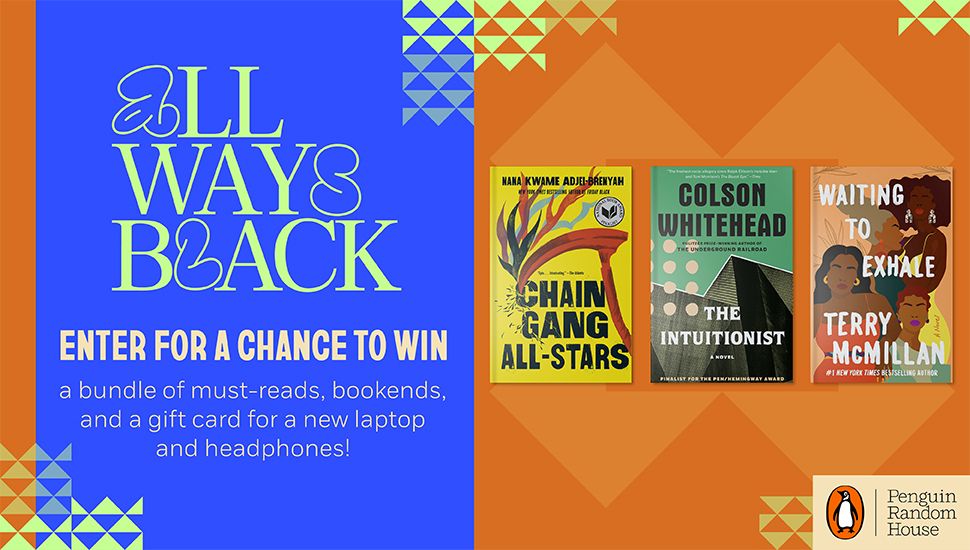

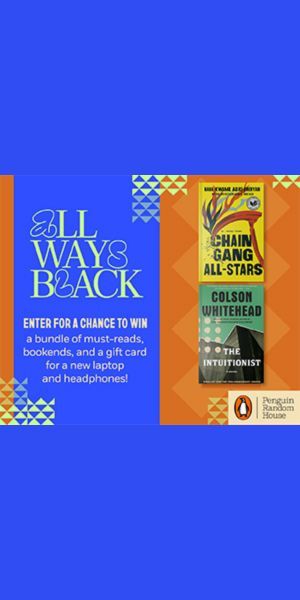
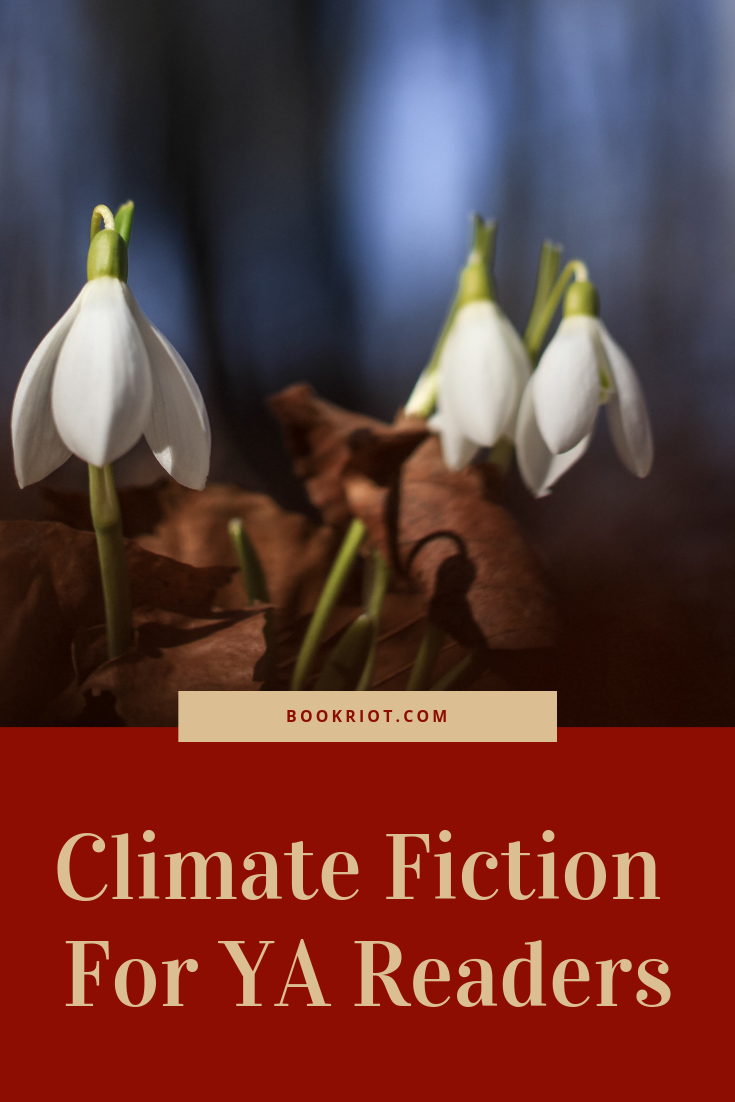
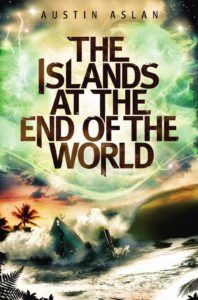 The Islands at the End of the World by Austin Aslan
The Islands at the End of the World by Austin Aslan